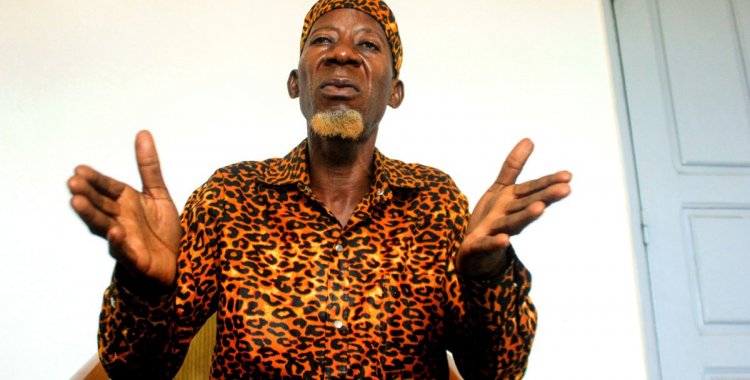The lawyer and human rights activist, who is President of the Movement for the Reunification of the People of Cabinda for its Sovereignty – MRPCS, has defended activists allegedly involved in acts of rebellion and disturbance, terrorist organizations and criminal association and denouncing human rights violations.
In an interview with Lusa in Cabinda, the northernmost province of the country, which received a visit from the President of the Republic in April, the lawyer said that the chief executive "did not have a good reception" because he did not fulfill the promises made in 2017.
"There is no work that convinces the people of Cabinda that, in fact, the President of the Republic pays attention to this territory", he underlined, pointing out that human rights in Cabinda are "a serious case".
Since João Lourenço "ascended the throne", Cabinda "has known difficult times in terms of human rights violations", he denounced, stating that it is the information services, police and armed forces that manage, in practice, the territory.
"No citizen is allowed to express his opinions and his rights. Demonstrations and meetings are prohibited in this territory", he lamented.
"Even my own house was surrounded by security individuals. I stayed inside my house for three days (coinciding with the period of the presidential visit) which prevented me from going to work," the lawyer told Lusa.
"As soon as the President arrived, my house was surrounded by people from the intelligence services. They took pictures of the people who went there and of the vehicles, these intimidations made me stay closed all this time to see the degree of violation of human rights ", denounced Arão Bula Tempo, adding that three human rights activists were also detained during this period.
Citizens will have been taken to the Criminal Investigation Services, identified, interrogated and later released, without any explanations.
"For them, all those who think otherwise are dangerous elements", he criticized, clarifying that, also in his case, they did not give explanations: "from the way I was surrounded, I realized that if I left it would have consequences".
The lawyer recalled that there are two political activists who have been detained for several months for preparing a demonstration to appeal for peace in the territory and stressed that there is a worsening of tensions in that province, which is physically discontinued from the rest of Angolan territory and where independence movements are active, as the Front for the Liberation of the State of Cabinda-Armed Forces of Cabinda (FLEC-FAC).
According to Arão Tempo, in the days before the president's visit to the territory there were "serious clashes" that resulted in the death of 16 people, including civilians and military personnel.
"The problem is that we are all considered FLEC, which is not true. The problem is the lack of dialogue", he considered.
"We cannot accept that there are still deaths when Angola says it is at peace. That is why we say that human rights are prohibited here", continued the jurist, regretting that any peaceful protest is prevented.
"I myself have already been arrested and pointed out as an element that agrees with some acts when I have the right, as a lawyer, to defend anyone", he pointed out.
According to the lawyer, activists have been writing letters to the authorities asking for "more flexibility, in order to opt for dialogue and avoid repression against the people of Cabinda and the protesters".
"There is no other way to express discontent, legally, other than peaceful demonstrations", he recalled, suggesting that Cabinda "appears to be managed as a monopoly of the President of the Republic and his followers", where the Constitution of the Republic does not apply.
And he said he believed that instability would increase with the approach of the elections, given the recent positions of the guerrillas and the FLEC military leadership, regarding the intensification of the attacks in Cabinda.
"There are reports that we have received that say that the "men of the FLEC will not allow elections in Cabinda", he told Lusa, adding that "the discontent of the people" can have "greater repercussions and bring political-military instability to the territory".
However, what is wanted is a political solution for the territory, he said, criticizing the Popular Movement for the Liberation of Angola (MPLA) for "not knowing how to negotiate and having always used force".
The President of the Republic "must know that all Cabindans want a political solution for this territory, whether they are in the MPLA, or in UNITA (opposition), or elsewhere", he underlined, criticizing the fact that human rights issues , dialogue, and peace were absent from João Lourenço's speeches during his visit to Cabinda.
The independence movements in Cabinda, where much of the country's oil comes from, argue that the territory is a Portuguese protectorate, as established in the Treaty of Simulambuco, signed in 1885.







